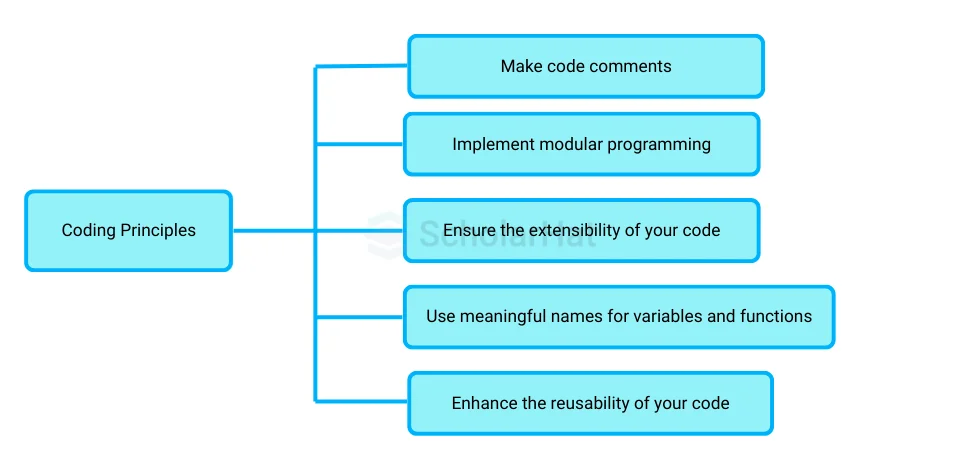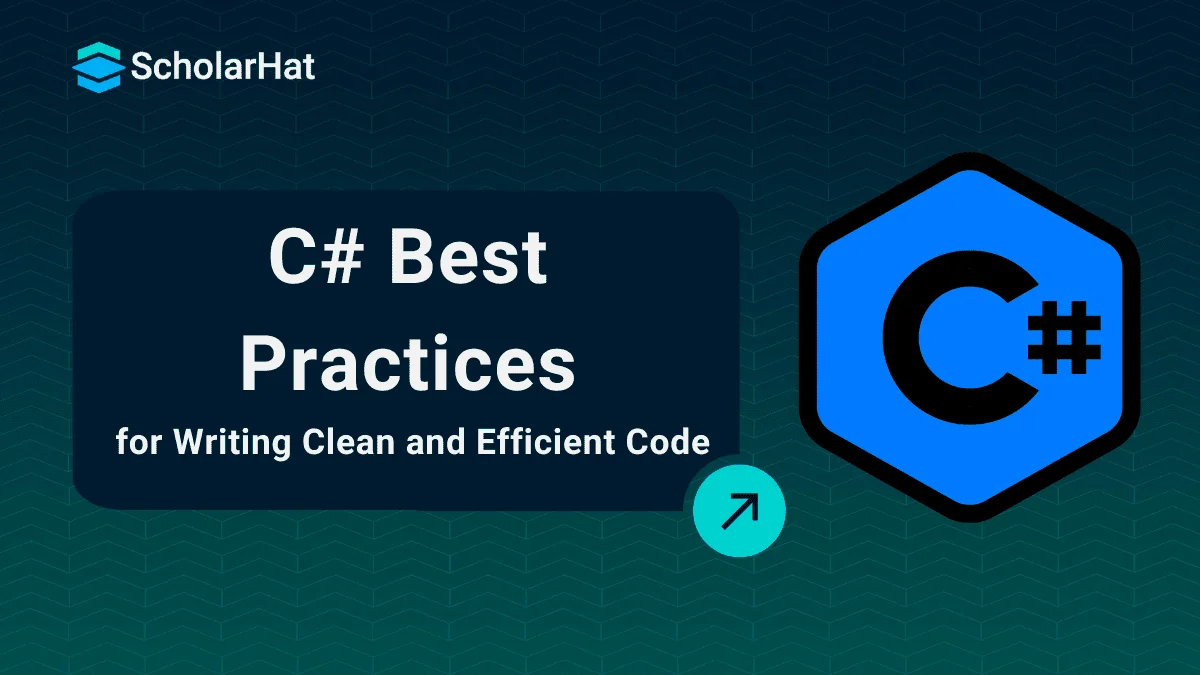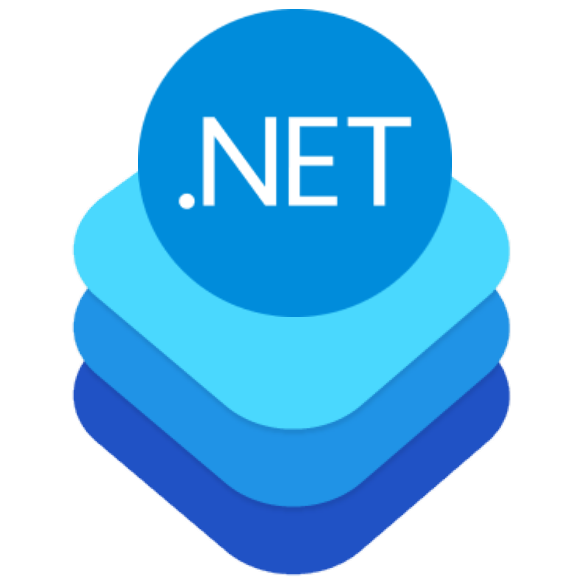14
DecC# Best Practices for Writing Clean and Efficient Code
C# Best Practices for Writing Clean and Efficient Code: An Introduction
Software developers refer to code that is simple to read, easy to comprehend, and maintain. Clean code principles are adopted for this purpose. Other developers can easily comprehend and modify your code when it is written cleanly. For any software development project, writing clean code is essential. It improves the code's efficiency, maintainability, and readability.
Unlock high-paying roles in game development and enterprise software with C# expertise, valued by 80% of tech employers. Enroll in our Free C# Certification Course now!
Coding Principles
The following is a path that follows clean code principles:

Make code comments
For the benefit of upcoming maintainers and developers, the practice of adding comments to your code helps to clarify its intent and the logic behind it. This will improve both your and everyone else's understanding of the code making problem-solving simpler.
Implement Modular Programming
Break your code down into reasonable sections. Maintaining order in your code will make it simpler to read and faster to execute. By dividing your code into different functions, you may keep relevant code segments together and make debugging simpler.
Ensure the Extensibility of your Code
When writing code, keep any potential changes in mind and make sure it can be expanded to accommodate them. You'll avoid a lot of trouble in the future by doing this.
Use Meaningful Names for Variables and Functions
Your variable and function names should be descriptive while writing code. By doing this, you'll make sure that you can recognize and comprehend their motivation
Enhance the Reusability of the Code
Whenever feasible, reuse the code. You can avoid having to repeatedly recreate the same code by writing reusable code. Your code will be shorter and easier to read and maintain as a result
Read More - C Sharp Interview Questions
Clean Code Practices in C#
You can ensure that your code is clear and effective by paying attention to clean coding practices. In addition to being simpler to maintain and debug, clean code also produces better documentation and facilitates easy collaboration with other programmers. C# Code examples provide clearer ideas.
Pay attention to these code tips:
- Use a Quality IDE: The first step is to select the best IDE for your tech stack. Visual Studio is among the best and most widely used IDEs for C#. Some programmers favor the paid Rider IDE as well. Your code will stay organized if you use these IDEs. The Intellisense tools in Visual Studio may correct and recommend modifications to code, and they are generally reliable.
- Implement a version control system: Working with code requires using version control systems because they let you keep track of changes made to your code and incorporate changes from other developers. They make it simpler to locate and resolve errors and help you preserve a code history.
- Apply the correct naming convention: It is best to be as explicit as possible when naming variables and methods. You should be able to grasp their purpose from them. Consequently, it should be easy to understand the names.
- Use short methods: Use concise approaches when writing code. Your code will be more understandable and organized if the methods are short. Furthermore, short methods are simpler to debug. You can easily identify and resolve any issues with a technique. If the procedure is drawn out and complicated, that is far more difficult to accomplish.
- Be mindful of the formatting: Code readability is increased by formatting. Most programmers are aware that a project's success depends on its code being clear and well-structured. The formatting of your code is important for a variety of reasons, though. When reviewing your code, for instance, it's one of the first things a reviewer will look at. It aids in maintenance and reworking since it makes the code simpler to comprehend and makes it simpler to identify potential errors.
- Simple conditional logic should be avoided in your programming: Code with complicated conditional logic might result in mistakes. The rationale will invariably be broken by someone altering the code, creating elusive flaws. When using conditional logic, keep it simple. Divide the code into smaller functions if it is more complex than it needs to be.
- Utilise design patterns in C#: This may be a task for a developer with architect-level skills. Determining which design patterns to use in a given situation requires a lot of experience. In essence, design patterns are patterns that can offer a workable answer while designing solutions.
- Remove unused code (dead code): In many software projects, dead code is a huge concern. There may be a few extra coding parts when you alter the code. Such code has no significance.
- Consider handling exceptions and edge cases: The failure of new developers to provide an exception handler for statements that potentially go wrong is one of the most frequent errors. As an illustration, it is an intelligent approach to include a try-catch block around a line of code that opens and reads a file. It may result in a fatal error if the file doesn't exist.
- Edge cases make up a sizable portion of the programming. In an edge case, multiple outcomes are possible, so you should be ready for all of them. Writing unit tests for all conceivable scenarios is one of the best ways to ensure the edge cases are bug-free.
How to Write Clean Code
Software that is simple to understand, maintain, and alter must be written in clean code. To write clean code, there are some tips available.
- Use precise names
- Create self-documenting code
- Functions should be compact and limited to a single task
- Format code content consistently
- Avoid code duplication (repetition of the same code)
- Code should be testable
- Add comments
- Adopt modular programming
- Use proper error-handling techniques
Conclusion
Clean code is essential for any software development project to improve the code's efficiency, maintainability, and readability. The coding tips include making code comments, implementing modular programming, ensuring extensibility, using meaningful names for variables and functions, and enhancing the reusability of the code. Clean code is easier to maintain and debug, produces better documentation, and facilitates easy collaboration with other programmers.
The tech industry needs full-stack .NET experts, with 22% job growth projected by 2026. Join our Full-Stack .NET Developer Certification and lead the way!
Take our Csharp skill challenge to evaluate yourself!

In less than 5 minutes, with our skill challenge, you can identify your knowledge gaps and strengths in a given skill.











